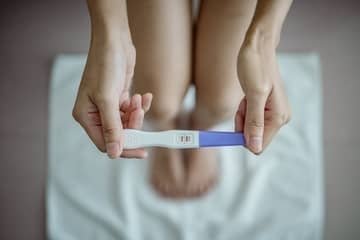
What blood types are compatible?
In general, there is no relevant and exact way to determine which blood groups are compatible and which are not. There are various characteristics of blood groups that are supposed to define a person's personality traits, their eating habits, susceptibility to diseases and even to determine a partner with the most suitable blood group. The fact is that such characteristics of blood groups are not scientifically based and do not in any way predict the compatibility of partners.
Partners are interested in the combination of blood groups primarily because they know what blood group their child will have. Alternatively, they are interested in which combinations of blood groups are dangerous during pregnancy. As it is? The basic categorization of blood groups is based on the AB0 antigen. Blood type A contains antigen A and antibody B, blood type A contains antigen B and antibody A. Blood type AB contains both AB antigens and no antibodies. The exception is blood type 0, which does not contain any antigens, but contains AB antibodies. What does it mean?
The blood group combinations of the partners determine what blood group their common offspring can have. Different genotypes can be created by combination. It is true that blood groups A and B have stronger genes, while blood group 0 has weaker genes. If both mother and father have the same blood group A, blood group A or 0 can arise. If the mother has blood group B and the father, for example, AB, can be A, B or AB. However, it is also important to know your Rhesus factor, which is much more important during pregnancy and blood group determination.
Which combinations of blood groups are dangerous? The Rh factor can be positive or negative. Rh positive contains, among other antigens, the important antigen-D. In this case, it is Rh+, if the blood group does not contain this antigen-D, it is referred to as Rh negative - Rh-. Also for this reason, a person with the Rh- factor cannot receive blood from a donor with the Rh+ factor. Despite the fact that it may be the same blood group, for example A.
It is a blood incompatibility that can also occur during pregnancy. It is risky if the child is positive. If the mother has a blood group with the Rh- factor and the child - the fetus has a blood group Rh-. First of all, it is important to note that this condition can be treated thanks to modern medicine. Paradoxically, this condition occurs more often in multiparous mothers, who may have developed anti-D antibodies during a previous birth. The reason for the complications is that the blood of the child with the Rh positive blood factor contains antigen-D, while the mother's blood does not contain this antigen. The natural reaction of the mother's body is that it begins to create antibodies against the child's blood, which will cause the fetus to not be properly nourished through the placenta. This can result in the development of hemolytic disease, miscarriage or death of the newborn during childbirth. It is necessary for the gynecologist to monitor antibody levels with antiglobulin tests and determine the correct course of action.
Women are often asked in discussions whether the same blood groups of the parents are a problem when conceiving a child or which blood groups are dangerous. Most of the women whose cases were related to the mother's Rh- factor and the baby's Rh+ factor reported that a medical solution was possible with the use of special Rhega injections containing anti-D globulin antibodies, which can be given after the first birth if the mother has Rh -negative and father Rh-positive. This will prevent the formation of antibodies during further births.
Pridať komentár






